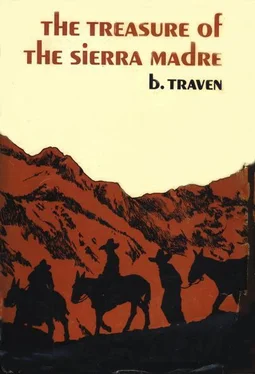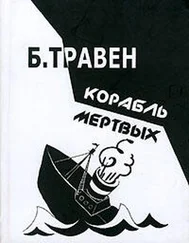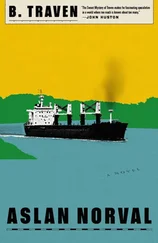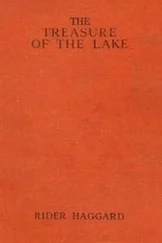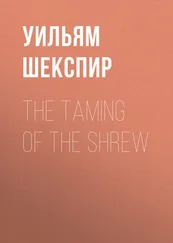Бруно Травен - The Treasure of the Sierra Madre
Здесь есть возможность читать онлайн «Бруно Травен - The Treasure of the Sierra Madre» весь текст электронной книги совершенно бесплатно (целиком полную версию без сокращений). В некоторых случаях можно слушать аудио, скачать через торрент в формате fb2 и присутствует краткое содержание. Год выпуска: 1935, Жанр: Вестерн, на английском языке. Описание произведения, (предисловие) а так же отзывы посетителей доступны на портале библиотеки ЛибКат.
- Название:The Treasure of the Sierra Madre
- Автор:
- Жанр:
- Год:1935
- ISBN:нет данных
- Рейтинг книги:3 / 5. Голосов: 1
-
Избранное:Добавить в избранное
- Отзывы:
-
Ваша оценка:
- 60
- 1
- 2
- 3
- 4
- 5
The Treasure of the Sierra Madre: краткое содержание, описание и аннотация
Предлагаем к чтению аннотацию, описание, краткое содержание или предисловие (зависит от того, что написал сам автор книги «The Treasure of the Sierra Madre»). Если вы не нашли необходимую информацию о книге — напишите в комментариях, мы постараемся отыскать её.
The Treasure of the Sierra Madre — читать онлайн бесплатно полную книгу (весь текст) целиком
Ниже представлен текст книги, разбитый по страницам. Система сохранения места последней прочитанной страницы, позволяет с удобством читать онлайн бесплатно книгу «The Treasure of the Sierra Madre», без необходимости каждый раз заново искать на чём Вы остановились. Поставьте закладку, и сможете в любой момент перейти на страницу, на которой закончили чтение.
Интервал:
Закладка:
Between these two stores a long corridor led into the patio of the hotel. This corridor could be shut off from the street by a very heavy door, which was kept open day and night.
On the upper floor of the building there were four rooms looking toward the street and four rooms looking into the patio. One could hardly picture poorer hotel rooms than these, yet none could be had for less than twelve dollars for the night— without bath, of course. The hotel had only two shower-baths with cold water. Hot water was unknown. The two cold showers had to serve for all guests of the hotel. Often there was no water at all for the showers, as the water-supply was limited, most of it being bought from street venders who carried it in five-gallon gasoline-cans on the backs of burros.
Only two outside and two inside rooms on the second floor were rented to guests; the other four rooms were occupied by the owner of the hotel and his family. The owner, a Spaniard, was practically never seen; he left all work and the care of his business to his employees.
The real business of the hotel did not come from these rooms, which stood empty often for weeks, since the price, despite the boom, was considered robbery on account of the fact that the guests could not stand the bedbugs for more than two hours and then had to go to another place for the rest of the night. The owner did not lower the price, and only occasionally did he do something about the bugs. After his warfare on them ninety out of a hundred felt happier than before.
The bulk of the business for the hotel came from the patio, where the patrons did not care about bedbugs or furniture and where the only thing that counted was the price of a cot.
The whole patio was surrounded by shacks made of boards of the cheapest sort, which were weather-beaten, cracked, and rotten. The roofs were partly corrugated sheet-iron, partly roofing paper, all leaky. Most of the doors were hanging on only one hinge, and none could be closed firmly. There could be no privacy in any of these shacks. Above each door a figure was written in black paint so that each shack could be identified.
Inside of these shacks cots were set up closer than in a field hospital during the war, damn it. On each cot a label was nailed telling its number. Every cot had two bedsheets, supposed to be white, clean, and without holes. Supposed to be. Then there was to every cot a thin blanket. Hardly one blanket could be found with more square inches of goods than square inches of holes. As the blankets were all of a dark color, it could not be seen whether they had been washed once since they had left the factory. A small, hard pillow was on every cot—hard like a chunk of wood.
All light and air entered by the doors and by the many cracks in the boards. Nevertheless the air in these rooms was always thick, smelling none too good. The wooden floor was broken through almost everywhere, and right beneath was earth, sometimes muddy, sometimes dry, but always infested with rats, scorpions, little venomous black spiders, and centipedes.
The patio was closed in by buildings on all sides, so there was no ventilation of any kind, and the sun, even when directly above the patio, could not penetrate. The privies were only slightly better than those in the trenches, damn them.
To this unpleasant atmosphere was added the thick smoke from a fire which burned in the middle of the patio all day long and until late into the night. For fuel anything under heaven that might burn was used, including old shoes and dried dung. Over this fire a Chinaman boiled his laundry in old gas-cans. He had rented a small extra shack, set up in the farthest corner of the patio, where, together with four compatriots, he ran his laundry. This, under the conditions of the boom, paid a high profit, from which the hotel-owner collected a certain cut.
The hall of the hotel, serving as the lobby, was identical with the corridor leading from the street to the patio. At the left, just before entering the patio, the manager had his office. He conducted his business through a small window in the corridor. Another window allowed him to watch all that was going on in the patio and to see that no guest took a better cot than he had paid for.
The greater part of his office was occupied by huge shelves on which, behind chicken-wire, in compartments, trunks, boxes, bags, suitcases, packages, and sacks were piled up to the ceiling. In another small room behind the office, and connected by a door never closed, there were still more shelves, all filled with guests’ belongings. No guest took the risk of having his bags or boxes or trunks in the sleeping-quarters.
Here on these shelves, well guarded by the clerk, were kept belongings not only of guests, but of patrons who had not had money to pay for their lodging more than one night, and who after that one night had slept on benches or in some nook near the docks or under trees on the river-banks, where no manager asked for payments, but where it sometimes happened that they were murdered for the thirty centavos in their possession.
Having paid at least for one night, a guest considered it his right to leave his belongings in the care of the hotel. If he needed a shirt or a pair of pants or whatever it might be, he came to the hotel, asked for his bag or package, took out what he needed, and returned the bag to the care of the manager. The manager could never tell whether the man was still a guest or not, and he was too polite or too indifferent to ask. There came a day when the man needed badly a quick change of climate for some reason or other. He had no money for train or for boat, so he had to rely on the means of transportation given him free of charge when he was born. Walking, he could not carry his bag or trunk—not here in the tropics, where there is no hitch-hiking. Today he is perhaps in Brazil, or in the Argentine, or in Hongkong, or his bones are bleaching in the sun somewhere near Venezuela or Ecuador. Who the devil cares? Perhaps slain, or dead of thirst, or eaten by a tiger, or bitten by a snake. His bag, regardless of what has happened to its owner, is still well taken care of by the hotel.
There came a day when the shelves could no longer hold all the bags, boxes, sacks, and grips of former guests, and there was not an inch of space left for the bags of newcomers. The owner of the hotel then ordered a general cleaning out.
Checks had never been given; such a luxury was not expected in this hotel. Some bags bore a label with the name of the owner. Others carried labels of the express companies, or a ship, or a hotel in Spain or Morocco, or Peru, by which its owner recognized it. Other bags had the name of the guest written on them in chalk or in pencil. It often happened that the owner could not get his package, which he recognized by its appearance, because he had forgotten the name he had given when he had handed his bag to the manager, having in the meantime changed his name several times for the sake of convenience.
From many suitcases and boxes the labels had dropped off or been torn off, or, if they were greasy, eaten by rats. Names written in chalk or pencil had disappeared. Often the clerk had forgotten to ask for the name of the owner, or the man had come in drunk and unable to remember his name. The clerk then wrote on the bag only the number of the cot which had been assigned to the guest, who, of course, forgot this number at once, if he ever knew it.
It was difficult to say how long certain things had been stored. The manager or the hotel-owner estimated the number of months things had been kept by the thickness of the layer of dust which covered them. They rarely made a mistake by this method of judging.
The owner of the hotel, in the presence of the manager, opened the baggage and packages, looking through them for valuables to be claimed by him in payment for the keeping. Mostly he found only rags or junk, for anyone who had something of value did not go to the Oso Negro Hotel, or if he did, he remained no longer than one night.
Читать дальшеИнтервал:
Закладка:
Похожие книги на «The Treasure of the Sierra Madre»
Представляем Вашему вниманию похожие книги на «The Treasure of the Sierra Madre» списком для выбора. Мы отобрали схожую по названию и смыслу литературу в надежде предоставить читателям больше вариантов отыскать новые, интересные, ещё непрочитанные произведения.
Обсуждение, отзывы о книге «The Treasure of the Sierra Madre» и просто собственные мнения читателей. Оставьте ваши комментарии, напишите, что Вы думаете о произведении, его смысле или главных героях. Укажите что конкретно понравилось, а что нет, и почему Вы так считаете.
